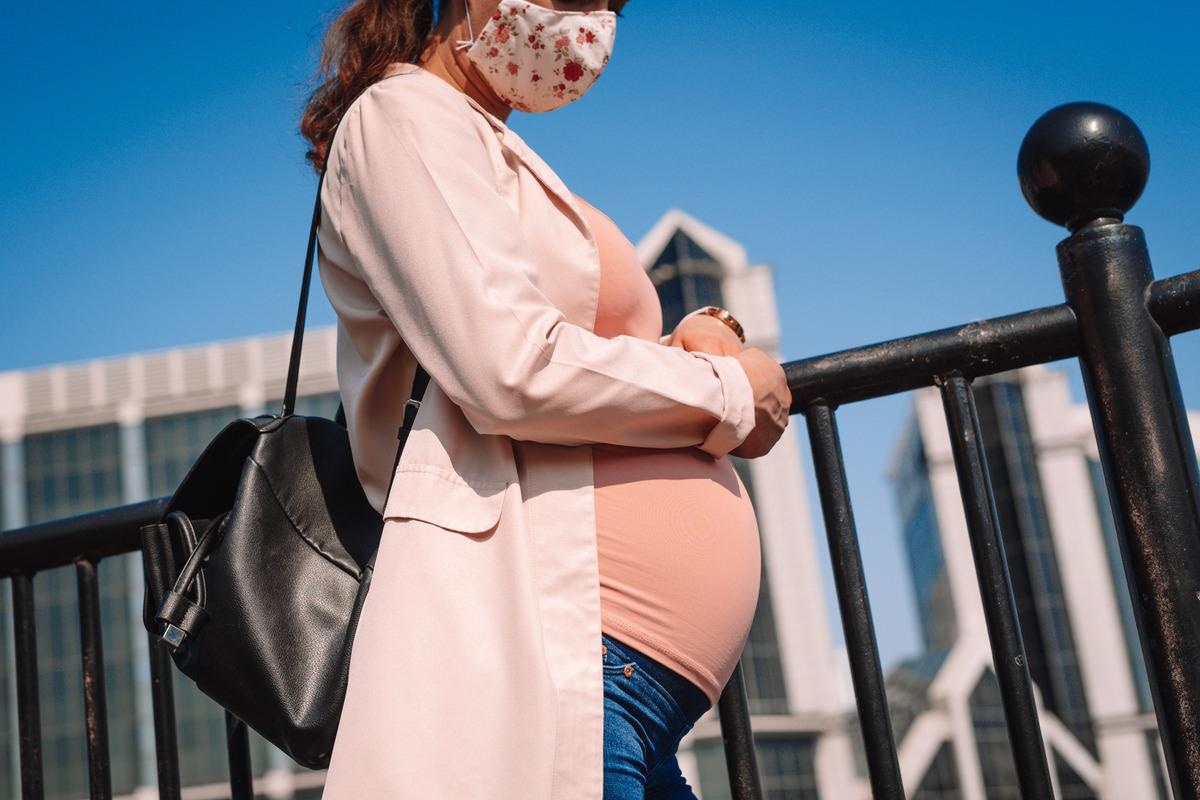The effect of coronavirus disease 2019 (COVID-19) on pregnancy, pregnant individuals and newborns has been a source of much discussion and worry. Severe acute respiratory syndrome coronavirus 2 (SARS-CoV-2) has shown extremely high transmission rates, and worry over the disease has led pregnant individuals to refuse the vaccine, avoid social situations and even completely shield themselves.
Researchers from the Icahn School of Medicine at Mount Sinai have been investigating the effect that past-COVID-19 infection has on cytokine levels during pregnancy.
 Study: Maternal cytokine response after SARS-CoV-2 infection during pregnancy. Image Credit: Corpii/Shuttertock
Study: Maternal cytokine response after SARS-CoV-2 infection during pregnancy. Image Credit: Corpii/Shuttertock
The group’s study can be found on the bioRxiv* preprint server, whilst the paper undergoes peer review.
The Study
Any pregnant individuals receiving care at Mount Sinai Hospital and Mount Sinai West from April 20, 2020 onwards were eligible for inclusion in the study. Under 18s were excluded. Blood is collected as part of routine care during pregnancy, and the researchers used this to perform serological assays to confirm past SARS-CoV-2 infections.
One-hundred pregnant individuals with anti-spike IgG antibodies were used as cases, and 100 pregnant people with no detectable antibodies were used as controls. The controls were matched to cases on age, race, parity and insurance status. All participants gave birth to a singleton infant. An ELISA assay developed at Mount Sinai was used to detect the anti-RBD antibodies, and if this showed their presence the samples were diluted and tested for antibodies against the full spike protein. Plasma samples were used to quantify the levels of 14 different cytokines using a commercially available T-cell discovery array.
Patient demographic and clinical characteristics were extracted from medical records, and final analyses adjusted for covariates that were risk factors for SARS-CoV-2 infection or likely to change cytokine levels. The researchers used independent samples t-test and Mann-Whitney U test to examine demographic characteristics with continuous variables and chi-squared test for categorical variables. Correlations were examined with Spearman’s rho. Principal component analysis was used for each cytokine cluster if suitable. Multiple linear regression analyses were used to examine the associations between anti-spike protein antibodies with individual cytokine levels.
Antibody levels were characterized as mild in 37% of individuals, moderate in 47% and high in 16%. Two samples showed no cytokine values for IL-4 and IL-13, so these were not included in the analysis. All other samples showed values within the standard curve. No significant difference in distribution of cytokine levels between cases and controls could be detected, and no association between anti-spike IgG status and cytokine levels was detected in both adjusted and unadjusted analysis. Anti-spike protein titres and cytokine levels also showed no relationship. A sensitivity analysis showed no difference in cytokine levels between cases and controls. When linear regression analysis was performed separately for samples from the 3rd trimester and samples from labor and delivery, no differences could be seen other than significantly lower IL-23 in cases compared to controls during labor and delivery.
Spearman correlation analyses did show a positive correlation between most of the cytokines, with TNFalpha proving the exception. As this was unexpected, they examined biological mechanisms that could interfere with TNFalpha levels, but found nothing.
Hierarchical cluster analysis using 13 correlated cytokines identified three clusters - cytokine cluster 1 (IL-1β, IL-8), cytokine cluster 2 (IL-4, IL-5, IL-6, IL-13) and cytokine cluster 3 (IL-10, IL-12p70, IL-17A, IL-23, IFN-γ, IL-2, GM-CSF), with a cumulative variance of 55.77% explained. All these showed the strongest correlation within their cluster eigenvalue compared to individual cytokines. Once again examination of cluster Eigenvalues between cases and controls, and hierarchical clustering both revealed no significant difference between cases and controls.
Conclusion
These results are likely to be a relief for neonatal nurses, pregnant individuals and midwives, as it seems exceedingly likely that past infection with SARS-CoV-2 has no significant effect on antibody or cytokine levels during pregnancy, labor or delivery. The authors do suggest that a larger sample size should be used for future studies, as well as additional tests to assess anti-spike protein IgG antibodies in case of false positives/negatives. They also suggest collecting information on the severity of the infection suffered by the individual. The information gathered here could help inform healthcare workers and childcare/natal professionals, and could be important in helping individuals who have suffered infection with SARS-CoV-2 through pregnancy.
Important notice:
bioRxiv publishes preprint papers that have not yet undergone peer review. This information should not be taken as fact nor used to guide clinical or research practice.